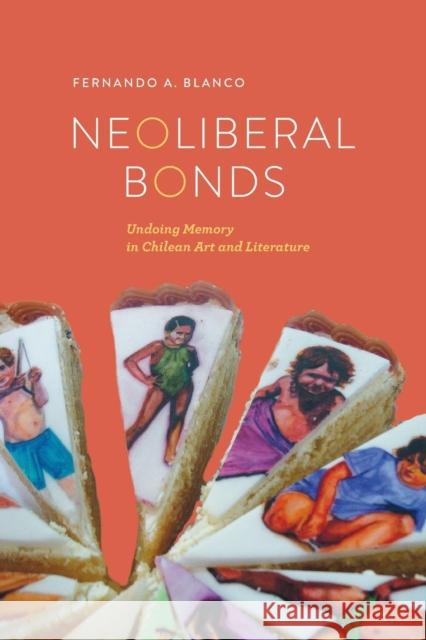Neoliberal Bonds: Undoing Memory in Chilean Art and Literature » książka
Neoliberal Bonds: Undoing Memory in Chilean Art and Literature
ISBN-13: 9780814252161 / Angielski / Miękka / 2015 / 192 str.
Fernando A. Blanco's Neoliberal Bonds: Undoing Memory in Chilean Art and Literature analyzes the sociocultural processes that have reshaped subjectivities in post-Pinochet Chile. By creatively exploring the intersections among memory, gender, post-trauma, sociology, psychoanalysis, and neoliberalism, Neoliberal Bonds draws on Lacan's notion of perversion to critique the subjective fantasies that people create to compensate for the loss of the social bond in the wake of a dictatorship founded on individualism, competition, and privatization.
Neoliberal Bonds vehemently criticizes how Chile's transition governments, through a series of political and legal maneuvers, created the state's official memory narratives. Blanco argues that the state, the media, academia, and the neoliberal market colluded to colonize and mediatize the "memory scene." In contrast to these official narratives, Neoliberal Bonds analyzes alternative memory accounts within the visual arts and literature that push back against the state, its institutions, and its economic allies. These alternative memory narratives highlight the ontological fracture of the new neoliberal subjects; they also bring into sharp relief the urgent need for democratization that still poses a challenge to Chile a quarter century after its "transition to democracy" began.Fernando A. Blancos Neoliberal Bonds: Undoing Memory in Chilean Art and Literature analyzes the sociocultural processes that have reshaped subjectivities in post-Pinochet Chile. By creatively exploring the intersections among memory, gender, post-trauma, sociology, psychoanalysis, and neoliberalism, Neoliberal Bonds draws on Lacans notion of perversion to critique the subjective fantasies that people create to compensate for the loss of the social bond in the wake of a dictatorship founded on individualism, competition, and privatization. Neoliberal Bonds vehemently criticizes how Chiles transition governments, through a series of political and legal maneuvers, created the states official memory narratives. Blanco argues that the state, the media, academia, and the neoliberal market colluded to colonize and mediatize the "memory scene." In contrast to these official narratives, Neoliberal Bonds analyzes alternative memory accounts within the visual arts and literature that push back against the state, its institutions, and its economic allies. These alternative memory narratives highlight the ontological fracture of the new neoliberal subjects; they also bring into sharp relief the urgent need for democratization that still poses a challenge to Chile a quarter century after its "transition to democracy" began. Fernando A. Blanco is Assistant Professor of Spanish at Bucknell University.











